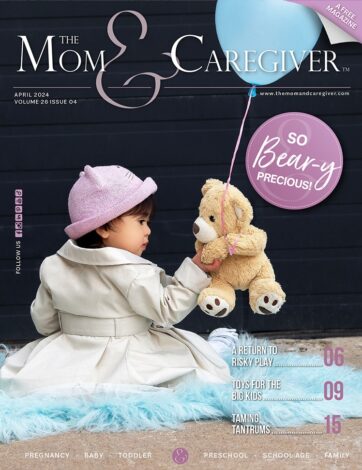As They Grow – What is Family Learning?
Parents and caregivers are a child’s first and most important teacher. Their words, interests, and actions are a powerful influence on their child’s development, laying the foundation for a child’s lifelong relationship to learning. This is the core of family learning.
Simply put, family learning is the learning family members engage in together over the course of their lifetimes. It takes place whenever a child is engaged with any caring adult in their lives. It occurs when members are participating in an activity together; but it also takes place when a family is discussing an experience had elsewhere, like at work or at school.
Through family learning, parents and caregivers have a unique opportunity to help their children access knowledge beyond their normal reach. This idea, known as the zone of proximal development, suggests there’s so much children are able to learn and understand when they are supported by a caring adult.
When caregivers actively engage in learning with their child, it demonstrates to the child that their ideas matter. It increases the child’s sense of belonging and helps them feel safe and supported. This engagement allows children to test new ideas, encourages them to overcome frustrations, and improves their resiliency. Family learning can have a positive long-term impact on a child’s development.
With chronically overscheduled lives and a lack of quality family time, it is easy to feel like there isn’t enough time to set aside for family experiences. Creating moments for positive family learning doesn’t have to be difficult or time-consuming.
To support positive family learning:
- Take time to play and learn with your child. For example, when it comes time to prepare meals, involve children in the cooking process.
- Turn weekly tasks, like grocery shopping or driving in the car, into opportunities for conversation, singing songs, or playing games.
- Let your child take the lead, even if they have a different method for accomplishing a task. This will give them a sense of accomplishment and independence.
- Ask your child how they would like you to be involved in their learning with questions like “where does this go?” or “what comes next?”
- Treat these as opportunities to learn yourself. Children are competent and capable, and often have interesting things to share. Family learning is beneficial for all members.
- Observe your child playing. This helps caregivers better understand how their child learns and how to best support them.
- Offer encouragement. Help children reach new levels of understanding with small prompts like “what else can you try?” or “how can we work on this together?”
Sources:
https://engagefamilies.org/family-learning-101/what-is-family-learning/
https://www.simplypsychology.org/Zone-of-Proximal-Development.html
Submitted by Jamie Fenton, Programs and Services Manager, London Children’s Museum













